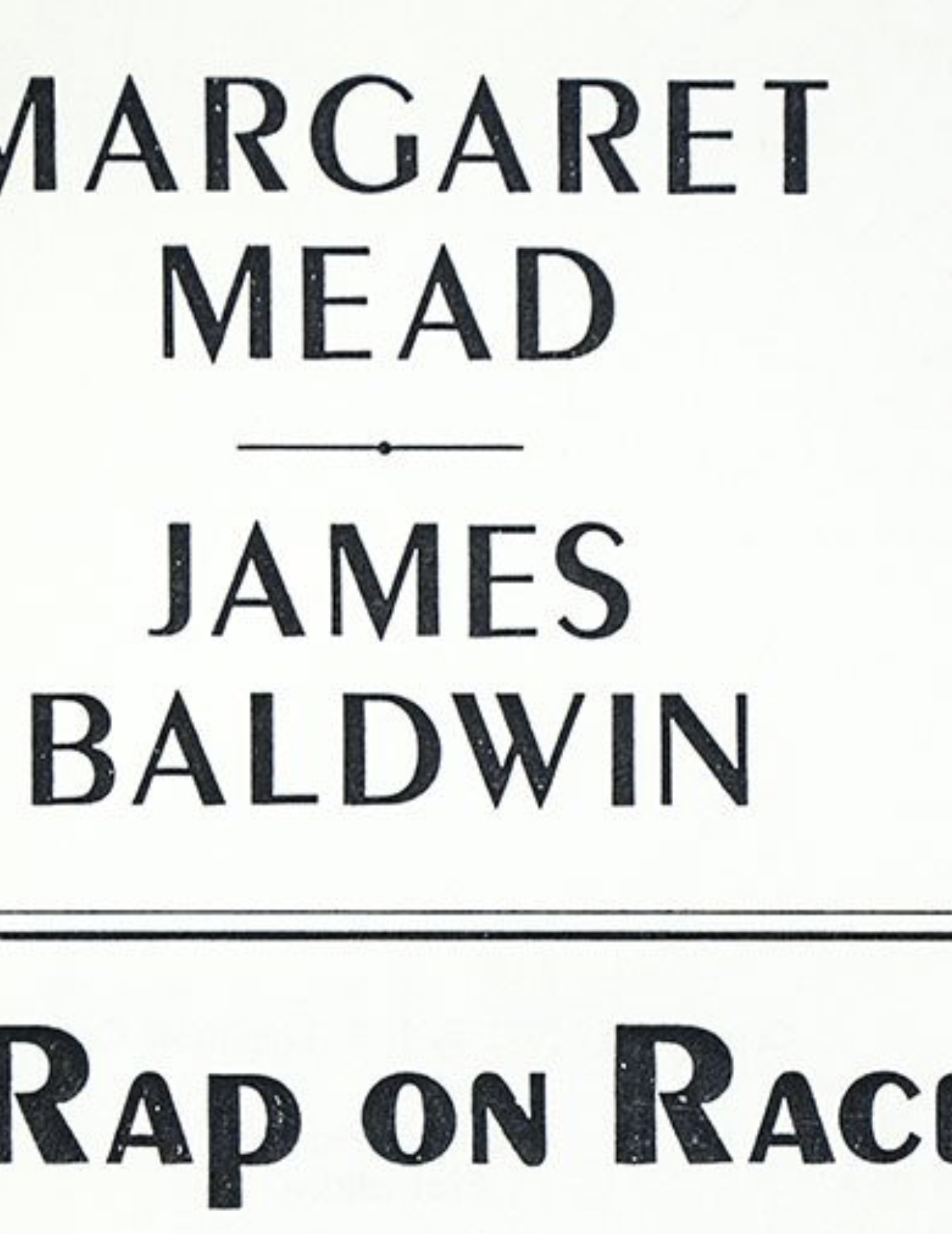Published as ‘Bucking the burden’ in New Society 22 July 1971.
A Rap on Race by Margaret Mead and James Baldwin
Three rounds of conversation, stretching over seven and a half hours, spanning two days-256 pages of it – almost all of it worthless, except, that is, for Baldwin-gazers or Mead maniacs. And even they would do well to skip the first 175 pages, so replete they are with courtesies and politenesses, mush about brotherhood, and anecdotes which illumine nothing so much as their narrators.
Nowhere is there any sort of real understanding between the two, nowhere a tangible discussion on race. Baldwin poses the problems, Mead explains them away or digresses or, often, just does not understand what he is talking about. He rails at America’s reification of man, she points out that it is from America that the New Guineans learned-and it is they who say so-that “the only thing that matters are human beings.” He paints “the white Christian world as nothing but a tissue of lies,” she brandishes the concept of universal love as Christian too. He complains that the Pope blessed the rape of Ethiopia, she explains that all armies were so blessed at the time.
And so on it goes-she precise and literal, like a scientist, he as extravagant and truthful as a poet.
But when the final breakdown comes, it derives not so much from their inability to understand each other – they are, after all both liberals – as from their common inability to understand the politics of race. Baldwin veers towards it from time to time, but no more than he did in The Fire Next Time.
But that was way back in 1963. Black history has moved apace since then: the anguish has turned to rage and the rage harnessed to fire programmes for power. Baldwin, however, remains stranded on the shores of rhetoric. And although the rhetoric has a political ring to it, he himself remains unscathed, apolitical-an avatar of personal relationship. Whereas black people today know by the very nature of their being that any relationship between blacks and whites is, in the final analysis, a power relationship. Not Baldwin, though-and we have it on his own admission: “I was a revolutionary at 15, but I gave that up the same time I left the church.”
Mrs Mead, on the other hand, is totally non-political. Not only does she not see, as Baldwin fleetingly does, the connection between power and colour and poverty, she even frames an apologia for power. Henry Ford, for instance: “…you have to accept Mr Ford. Mr Ford’s mass production for the mass of the people is one of the things that got us here you see.” And where did it get Mr Ford? Equally, one had to accept Thomas Jefferson for, although he owned slaves, “he did postulate ideas of democracy that one could follow.” Democracy for whom, though? She even believes that power in Guyana is “in the hands of black people.” Hasn’t she heard of Booker Bros?
Inevitably, when they get to grips with the subject – for the subject, after all, is themselves – there is violent disagreement over the questions of guilt and responsibility, of time past and time present. Baldwin, who carries on his back the burden of his history, cannot understand why Mead will not accept hers. She, for her part, refuses to atone for the sins of her fathers refuses to accept what seems to her to be the vendetta theory of history-for should she then confront Catholic Scots with the torture of her ancestors?
She cannot see that she is the beneficiary of her “father’s sins” and therefore owes his victims recompense, she cannot see that only that past is relevant which impinges on the present so as to predicate the future and he cannot show her.
